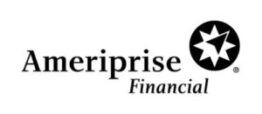

Accelerated Capital Group a brokerage firm headquartered in California has been censured and fined $400,000.00 by Financial Industry Regulatory Authority (FINRA) founded on accusations that the firm’s brokers: (1) executed unauthorized trades in customer accounts (2) sold customers investments that were not suitable for them and (3) executed trades in customer accounts on an excessive basis. Department of Enforcement v. Accelerated Capital Group, Inc. Disciplinary Proceeding No. 2012033566205 (Feb. 15, 2019).
Evidently, on December 13, 2017, a Complaint had been filed by FINRA Department of Enforcement alleging that the firm’s supervision was deficient with respect to two of the firm’s registered representatives which led customers to suffer from substantial losses. The Complaint alleged that the firm: neglected to provide FINRA with information regarding the firm’s trading practices; utilized altered documents and pre-signed documents to effect securities transactions in customer accounts; failed to set up a supervision system geared towards ensuring compliance with securities laws and FINRA Rules; and caused transactions to be effected in customer accounts on an unauthorized, unsuitable and excessive basis.
Particularly, the Decision noted that an investigation had been launched by FINRA into Bahram Mirhashemi, “BM” – a registered representative of the firm who violated company policies. FINRA Department of Enforcement reportedly became aware of additional misconduct as referenced within examinations conducted by FINRA personnel. Specifically, the Department of Enforcement commenced a review of mutual fund exchanges being effected by another broker, and the use of altered and pre-signed forms being used by the firm’s associates.
The Decision stated that the firm’s supervisory failures were numerous; the impact severe. Apparently, the firm neglected to create a supervision system adequately designed to uncover excessive, unsuitable or unauthorized trades executed in customer accounts by brokers of the firm. Apparently, the supervisory systems used by the firm did not make sure brokers provided customers all information pertaining to the fees and commissions charged in their accounts.
The firm’s supervisory system also reportedly fell short on ensuring that the investment recommendations made by the firm’s brokers were appropriate for customers. Further, there were supposedly no supervision systems designed to make sure customers were cognizant of the costs and the recommendations made to them. Moreover, because of the firm’s supervisory systems, there were apparently no assurances that customers knew about it being unsuitable for them to purchase Class A mutual funds when investing on a short term basis.
Supposedly, registered representative BM caused customers to incur significant harm by way of his trades. Evidently, the firm knew about the broker being terminated from a prior firm for engaging in violative sales practices. Consequently, BM was apparently placed on heightened supervision. The Decision stated that the broker ignored the firm’s conditions, and proceeded to place class A mutual fund trades on a short term basis in the customers’ accounts.
The Decision stated that BM’s trading practices should have resulted in disciplinary action by supervisory personnel; however, this never happened. Particularly, no customers were called by the firm, even though the firm informed BM about the firm’s plans to make random calls to his customers pursuant to a heightened supervision agreement. The firm reportedly failed to grasp that BM was executing unsuitable short-term trades in customers’ accounts, and it was ignorant of customers not having known about the trades let alone approving of them. The Decision also revealed that the firm failed to utilize exception reports which would have been capable of identifying that customers’ accounts had been churned by BM.
The Decision further noted that Bahram Mirhashemi continued trading excessively after he received a disciplinary letter from the firm for his aggressive trading. Consequently, more than two thousand trades had been executed by BM in eleven accounts owned by firm customers. In many of those trades, the customers apparently never provided authorization for BM’s trades. Consequently, FINRA’s Office of Hearing Officers found the firm’s conduct violative of FINRA Rules 3110(a) and 2010.
The Decision also stated that the firm was liable for unsuitable transactions effected by BM. Critically, BM’s unsuitable trades reportedly caused customers to sustain more than $900,000.00 in damages. FINRA’s Office of Hearing Officers stated that the customers were harmed by both trading losses and wrongful sales loads. In particular, from September of 2012 to September of 2014, a total of one hundred fifty Class A mutual fund purchases had been effected in accounts owned by twenty one customers. All but three of those customers did not provide authorization. BM reportedly generated $150,000.00 in commissions in this regard. Then, through his two thousand trades in eleven customers’ accounts from October of 2013 to December of 2014, a total of $500,000.00 in commissions had been generated by BM while a total of $750,000.00 in trading losses were incurred by customers. FINRA’s Office of Hearing Officers found the firm’s conduct in this respect to be violative of FINRA Rules 2010 and 2111.
FINRA also found that the firm failed to utilize supervisory procedures that prohibited brokers from utilizing blank, pre-signed forms to effect customer account transactions. The Decision stated that multiple brokers of the firm utilized those pre-signed forms until August of 2015. The firm’s activities in this regard were found by FINRA’s Office of Hearing Officers to be violative of FINRA Rules 2010 and 4511.
Further, FINRA’s Office of Hearing Officers cited the firm for failing to notify FINRA about customers who complained about the firm’s conduct. In particular, a customer complaint had been made in regard to broker JLS, in which JLS was accused of liquidating a customer’s mutual fund positions. This matter, which resulted in a $19,749.00 settlement, was not disclosed by the firm as required. Consequently, FINRA’s Office of Hearing Officers found the firm’s actions violative of FINRA Rules 2010 and 4530.
The Decision stated that an Answer to FINRAs Department of Enforcement Complaint had initially been filed by the firm; however, the firm then sought to close out its registration with Securities and Exchange Commission (SEC) and terminate its membership with FINRA. Evidently, the firm did not attend a FINRA conference scheduled for October 26, 2018. Consequently, FINRA Office of Hearing Officers found the firm to have been in Default and, in turn, found FINRA Department of Enforcement’s allegations against the firm to be true.








